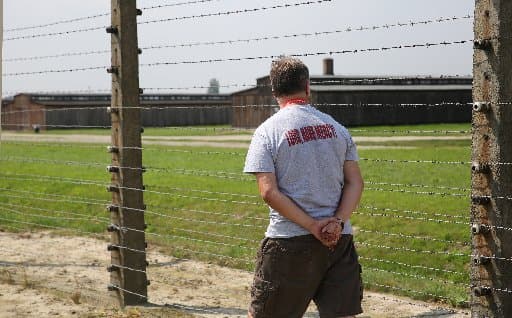ZAGREB, Croatia — People today honor the sacrifice St. Maximilian Kolbe made in giving his life for others, but prisoners at the Auschwitz concentration camp had some trouble understanding his actions, said a Polish historian.
In a wide-ranging interview with the Croatian Catholic weekly Glas Koncila, historian Teresa Wontor-Cichy spoke about the role religion — especially prayer — played at the camp and warned horrors similar to the Holocaust could recur if people close their eyes to injustice.
Wontor-Cichy, a historian at the Auschwitz-Birkenau Memorial and Museum in Oswiecim, Poland, said the most common way religious life was seen in the camp was prayer.
“One of the survivors that I met at the camp not long ago, Bogdan Bartnikowski, was deported from Warsaw at the time of the Warsaw Uprising, and as a teenage boy he was kept in Birkenau with another group of boys same age, all from Warsaw,” Wontor-Cichy told Glas Koncila, which translated the interview into English.
“Looking from a later perspective, he told me that seemed unbelievable, but at the time, from their perspective, it was a routine, something normal. Looking from a perspective of a 90-year-old man, he said that experience of collective prayer was something that isolated them from camp cruelty. This also gave them hope that they would all survive as a group until the next day,” Wontor-Cichy told Glas Koncila.
Wontor-Cichy told of other instances of group prayer and people praying the rosary. Very few children were born in the camp, and when they were baptized, it was by a layman, not a priest. “Facing death, the mothers wanted their children to be baptized.”
Kolbe was among priests who ended up at Auschwitz, because “the Germans knew the role and the significance of the actions by the churches, especially the Catholic Church,” in saving language, culture and identity.
Kolbe is known for giving his life for another prisoner, but many other prisoners would not have understood his action since it was “something absolutely exceptional in the camp reality,” said Wontor-Cichy.
According to camp regulations, if a prisoner escaped, 10 others had to die.
“All of the selected were in despair, facing death. One of them cried about his family and his children, and another prisoner came forward and asked directly if his life could be exchanged. So one person gave his life to another person. It was Maximilian Kolbe,” she said.
Not everyone knew he was a priest. “They saw just another prisoner, a skinny skeleton looking like all other prisoners. They were shocked by the situation, they could not explain what the person was doing, what was his motivation. They were fighting day-by day to survive, to find strength to survive, and to give a life for somebody else was a shocking situation,” she said.
The historian said that in postwar memoirs, many survivors indicated that they did not reflect on the events until years later, and only then did they understand the saint’s action.
Seventy-seven years after the liberation of Auschwitz, “we may see the message,” Wontor-Cichy said. “But at the time of the concentration camp, the prisoner saw death after death. Kolbe, who was in the camp and was so nice and friendly, supported others, being so open for confession, he is not here anymore. So is it a victory or a defeat? What kind of message is that? So, at that moment this was very hard to recognize by the prisoners. Having this perspective of liberation, we may relate to this event as something good, or as an act of faith, or as an evidence that desire for life is always winning. But for the prisoners, it took time.”
Wontor-Cichy also warned in the interview about repeating the horror of the Holocaust, noting that in 2020 — the 75th anniversary of the camp’s liberation — a survivor spoke about how “anti-Jewish and general anti-Roma and anti-Polish ideas were introduced in German society starting with little steps, tiny steps, such as not allowing certain people to go to the parks, not allowing certain people to the swimming pools, to the public transport.” He said German society “was not careful enough, was not paying attention to how they were being manipulated.”
“He said that we have Ten Commandments and that one should be one added, ‘Do not be indifferent.'”












